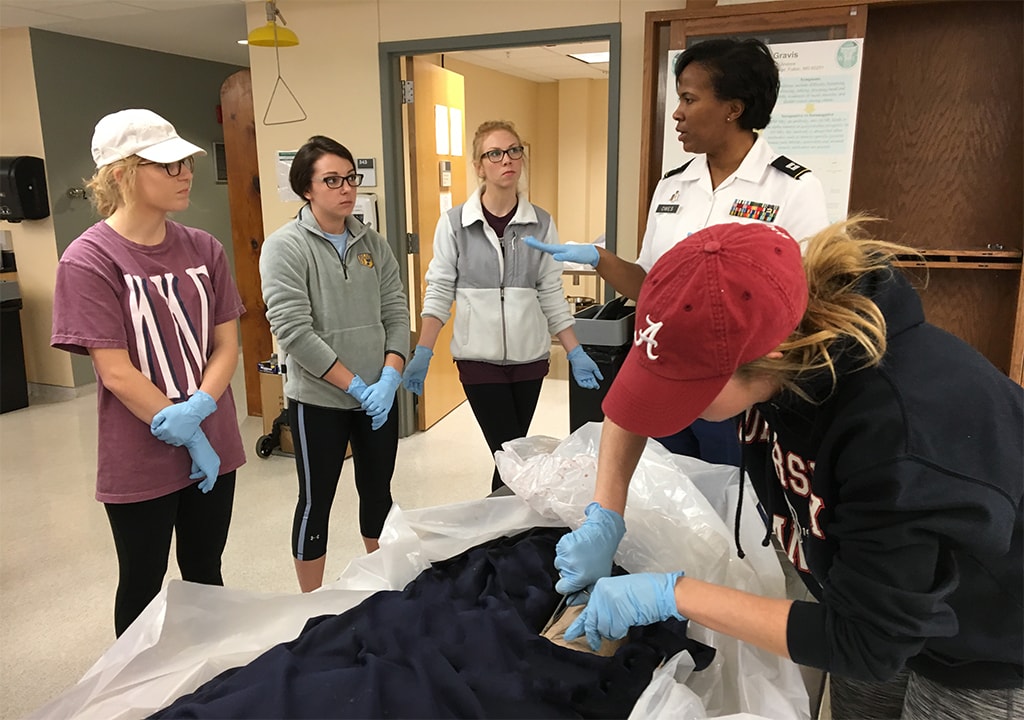Westminster College recognizes the growing interest and need for health care professionals – according to the U.S. Bureau of Labor Statistics, careers in health care occupations are projected to grow 15% from 2019 to 2029, much faster than many other industries.
The HPP is a specialty program allows a student to pursue any major of their choice at Westminster, while also gaining experience in health care settings and building the foundation for their continued medical studies.

Since a substantial number of students are interested in careers in the health professions, Westminster College supports a Health Professions Program (HPP) coordinated by Dr. Dawn Holliday. With the support of the College's Medical Professions Advisory Committee, students interested in the health professions have access to career counseling, academic advising and pre-professional experiences intended to prepare them for the additional steps needed for careers in medicine, dentistry, osteopathic medicine and veterinary medicine.
Typically, most Westminster students preparing for a career in the medical professions major in a natural science, such as Biology, Biochemistry, or Health and Exercise Science. However, this is by no means the only path – in recent years, Westminster graduates entering professional health programs include students whose majors were English and History!
That’s because medical, osteopathic, and dental schools usually do not stipulate a specific undergraduate major as a prerequisite for admission. They expect that applicants have a solid background in science that could be obtained by taking one year of each in General Biology, General Physics, General Chemistry, and Organic Chemistry for Pre-Med.
A Pre-Med or Pre-Health degree from Westminster will equip you with the knowledge and skills that matter for continued studies in health care. Professional schools usually base their admission decisions on the applicant’s level of academic achievement, scores on the appropriate admission test, results of personal interviews, recommendations by the applicant’s undergraduate professors, professional and volunteer experiences, and extracurricular activities – all of which our HPP will help you plan and prepare for.
Westminster College is pleased to offer pre-med and health professions students an experience that is nearly impossible to find at other undergraduate institutions - hands-on human cadaveric dissection through the Westminster College Cadaveric Dissection Program.
At Westminster, students don't just watch cadaveric dissection done by an instructor - they do it themselves.
Students will receive a bachelor’s degree in the major of their choice. Enrollment in the Health Professions Program does not count toward completion of a degree.
Students in the Health Professions Program will gain the skills and knowledge to help them in their journeys to medical school and continued health care studies.
Yes! Nearly all of our students get first-hand research experience. There are two ways for you to be involved in research. One, there will be opportunities in some of the courses to do independent projects in the lab. Or, if you have a hypothesis of your own or want to work with a faculty on their research, you can get independent study course credit for it!
Yes! If you enroll in Human Anatomy, Gross Anatomy, or pursue an independent prosection, you have multiple opportunities to spend hours working with the human donors. For example, many of our pre-dental students have worked on prosections of the face and pre-podiatry students have made prosections of the foot.
Yes! Career Services provides help with internships, shadowing experiences, and the fundamentals of the interview process. The Biology Faculty’s coursework is aligned with topics covered on the major Admissions Tests (MCAT, DAT, PCAT) and can assist you with mock interviews and prepping all aspects of your applications. We’re here to help!
Our biology students have varied interests and are active across campus. Many are involved in the Pre-Healthcare Professionals Club (PHCPA), Peer Health Educators, Tri-Beta the National Biology Honor Society, and involved in many service activities throughout the community. Many biology students are also active in athletics, choir, and Greek Life.